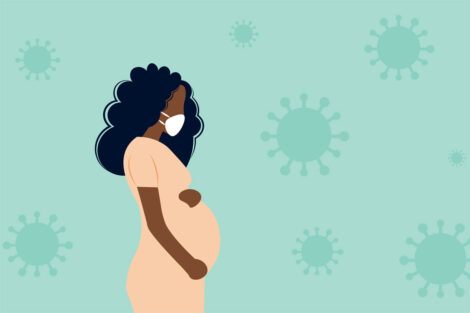For immediate release: Monday, March 1, 2021
Boston, MA—Most pregnant women and mothers of children younger than 18 years old say they would receive a COVID-19 vaccine and vaccinate their children, according to a survey conducted by researchers at Harvard T.H. Chan School of Public Health. The research indicated that vaccine acceptance was highest in India, the Philippines, and all sampled countries in Latin America, and it was lowest in Russia, the U.S., and Australia.
The results were published online on March 1, 2021 in the European Journal of Epidemiology.
Vaccines for COVID-19 are being distributed around the world, but until now researchers have had little data about global COVID-19 vaccine acceptance. To assess pregnant women and mothers’ stances on whether to vaccinate themselves and their children, a team led by Harvard Chan School’s Julia Wu, research scientist in the Department of Epidemiology and a principal investigator of the Human Immunomics Initiative, conducted an online survey administered by the Pregistry website between late October and mid-November 2020.
Almost 18,000 women in 16 countries responded to questions about a hypothetical safe and free COVID-19 vaccine with 90% efficacy. Overall, 52% of pregnant women and 73% of non-pregnant women said they would receive such a vaccine, and 69% of all women surveyed said they would vaccinate their children.
Vaccine acceptance varied by country. Acceptance in India, the Philippines, and Latin American countries was above 60% among pregnant women and above 78% among non-pregnant women for themselves; more than 75% of mothers indicated they would vaccinate their children. Vaccine acceptance in the U.S. and Russia was lower (below 45% among pregnant women and below 56% among non-pregnant women for themselves) and similar to countries with very few COVID-19 cases, such as Australia and New Zealand. This phenomenon in the U.S. and Russia could be due to COVID-19 denial, according to the researchers.
Wu and her team asked the survey participants about various topics related to vaccinations and COVID-19. The strongest predictors of COVID-19 vaccine acceptance among the women surveyed included confidence in COVID-19 vaccine safety or effectiveness, worrying about COVID-19, belief in the importance of vaccines to their own country, compliance with mask guidelines, trust in public health agencies and health sciences, as well as attitudes towards routine vaccines. Pregnant women who were reluctant said they had concerns about exposing their developing baby to possible harmful side effects, the vaccine being rushed for political reasons, and the lack of safety and effectiveness data in pregnant women.
“Our study confirmed that COVID-19 vaccine hesitancy is multifaceted,” said Julia Wu, who is senior author of the paper. “The perceived threat of COVID-19, level of trust in public health agencies, and existing pre-COVID 19 vaccine attitudes play key roles shaping vaccine acceptance and confidence. Vaccination campaigns should be tailored to alleviate these specific concerns.”
Other Harvard Chan School researchers include Malia Skjefte, Michelle Ngirbabul, Oluwasefunmi Akeju, Daniel Escudero, and Sonia Hernandez-Diaz.
This research was funded by the Human Immunomics Initiative at Harvard Chan School and Pregistry, LLC and co-sponsored by the COVID Collaborative.
“COVID-19 Vaccine Acceptance Among Pregnant Women and Mothers of Young Children: Results of a Survey in 16 Countries,” Malia Skjefte, Michelle Ngirbabul, Oluwasefunmi Akeju, Daniel Escudero, Sonia Hernandez-Diaz, Diego Wyszynski, Julia W. Wu, European Journal of Epidemiology, online March 1, 2021, doi: 10.1007/s10654-021-00728-6
Image: Shutterstock/M M Vieira
Visit the Harvard Chan School website for the latest news, press releases, and multimedia offerings.
###
Harvard T.H. Chan School of Public Health brings together dedicated experts from many disciplines to educate new generations of global health leaders and produce powerful ideas that improve the lives and health of people everywhere. As a community of leading scientists, educators, and students, we work together to take innovative ideas from the laboratory to people’s lives—not only making scientific breakthroughs, but also working to change individual behaviors, public policies, and health care practices. Each year, more than 400 faculty members at Harvard Chan School teach 1,000-plus full-time students from around the world and train thousands more through online and executive education courses. Founded in 1913 as the Harvard-MIT School of Health Officers, the School is recognized as America’s oldest professional training program in public health.
